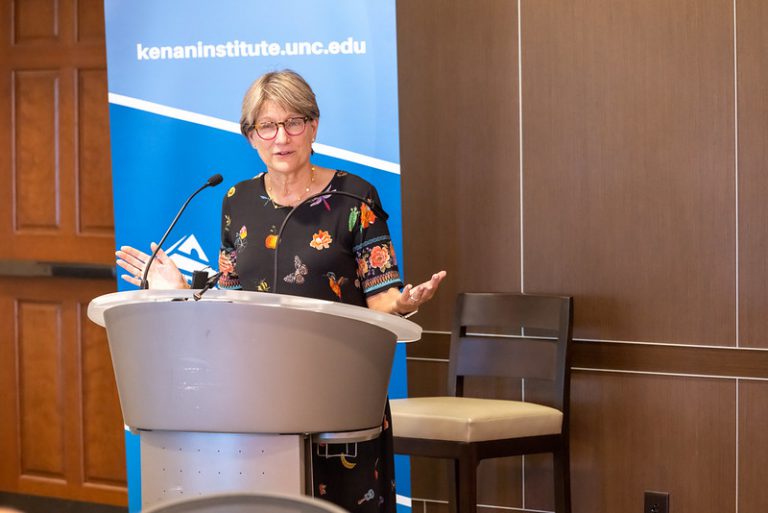
Conference Recap: A Diversity of Voices
In addition to academic presentations, the Conference on Market-Based Solutions for Reducing Wealth Inequality took participants out of the classroom and into the community for a walking tour and on-site discussions in nearby Durham, N.C.

As venture capital markets have surged in recent years, early access to capital remains highly localized. We examine changes that can help investors connect with underrepresented entrepreneurs outside traditional funding hubs, from innovative organizations to improvements in transportation.

The Solo Startup Can Succeed — With Some Help
Don’t believe the myth that a startup with a single founder is bound for trouble. According to a piece in the Harvard Business Review by UNC Kenan-Flagler Business School Professors Chris Bingham and Brad Hendricks, and UC-Irvine Paul Merage School of Business Professor Travis Howell, solo founders succeed with critical assistance from people and organizations who aren’t official co-founders and don’t require substantial equity.
Maryann Feldman, the S.K. Heninger Distinguished Professor in the UNC Department of Public Policy and faculty director of Kenan Institute affiliated center CREATE, testified before the House Subcommittee on Research and Technology on Wednesday.

Trend Watch: What’s Next for Entrepreneurship
Does the quality of startups increase when the quantity drops? Does entrepreneurial experience help or hurt a corporate job candidate? Do diverse teams make for better startups? The 2022 Trends in Entrepreneurship report brings together our global network of affiliated experts to address these questions and more – with key findings highlighted in this week’s insight.

Creating Better Futures Through Economic Development
CREATE, an economic development center at the institute, worked with civic and business leaders in Rocky Mount last summer to plan a Black Business Matters District downtown in an effort to address the racial wealth gap in the area. Executive Director Mark Little will join CREATE’s Rocky Mount partners on a panel at 9 a.m. on Thursday, March 24 to share their work as part of Carolina’s Engagement Week.

This session delves into three critical aspects of smaller/regional funds. First, is their role in increasing diversity among both capital allocators and entrepreneurs who receive funding. Second, is how pooling capital in diversified vehicles that can invest locally can promote investment by larger VCs/investors. Third, is how regional funds can bridge the divides in communities that lack robust VC ecosystems.
Total funding in North Carolina hit a record $3.4 billion in 2020 with the potential to hit $4 billion in 2021, along with a 10% increase in the number of companies funded, but it’s often a challenge to get cash cycled into new companies and new investments.
This session delves into three critical aspects of smaller/regional funds. First, is their role in increasing diversity among both capital allocators and entrepreneurs who receive funding. Second, is how pooling capital in diversified vehicles that can invest locally can promote investment by larger VCs/investors. Third, is how regional funds can bridge the divides in communities that lack robust VC ecosystems.

Kenan Institute experts, industry leaders and researchers came together to discuss the broad societal impact of entrepreneurs – including entrepreneurial ecosystems, funding and America’s untapped assets – and some of the biggest trends currently seen in the industry.
How does sentiment in a pitch affect an entrepreneur’s fundraising outcomes? Although research suggests that negativity in entrepreneurial “pitches” to investors adversely impacts resource acquisition, there is a lack of empirical research showing whether, and to what extent, this is true. We study over 30,000 entrepreneurial loan requests from one of the largest loan marketplaces to understand how the sentiment in text-only pitches to investors affects fundraising. In contrast to prior literature, we find that negatively-worded pitches are funded faster than positively-worded ones.
The sixth annual conference will convene thoughts leaders from academics, industry and government to debate the most challenging current issues in the field of entrepreneurship and set the agenda for future research and policy.



